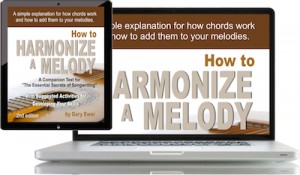An understanding of music theory can help make you a better overall musician, but doesn’t “create” musical abilities within you. To use an analogy, a bad violinist can buy the best multi-million dollar Stradivarius violin, and still sound bad.
As a songwriter with certain abilities, and therefore certain successes, you can (and likely will) become a better musician as your understanding of music theory increases, for the following reasons:
- It gives you vocabulary. For every characteristic of music that you notice, you’ll be able to identify it and label it using words that other musicians of similar training and background would understand.
- It improves your ear. You have a better shot at knowing what this or that weird chord is, or knowing what the melody just did in this or that bar, if you have a grounding in the nuts and bolts of music. The quicker and easier you can identify what you hear, the quicker and easier you can use those ideas in your own songs.
- It helps you communicate musical ideas to other musicians. Instead of saying to your bandmates, “I need the chorus to sound like it’s jumping in early… no, not like that… no, no, more like.. um, no… try this… no…”, you can communicate the idea in 3 seconds: “Let’s make the last measure of the verse a 3/4 bar.”
- It helps you become more creative. Seeing your music in notation form allows you to develop musical ideas motifs in a visual sort of way. Reading music gives you the ability to see musical relationships on paper, offering a new way to help you create.
- You waste less time in the recording studio. If you or your band are rehearsing for a recording session, your bandmates’ abilities to read music means you’ll cut down the amount of time spent getting ready.
 Got a melody but don’t know how to add chords to make it come alive? “How to Harmonize a Melody” (high quality PDF) does just that. It shows, step-by-step, how to choose chords that fit your tune, and how to experiment with chord substitutions. It’s part of “The Essential Secrets of Songwriting” 10-eBook Bundle, and comes with a free copy of “Creative Chord Progressions”
Got a melody but don’t know how to add chords to make it come alive? “How to Harmonize a Melody” (high quality PDF) does just that. It shows, step-by-step, how to choose chords that fit your tune, and how to experiment with chord substitutions. It’s part of “The Essential Secrets of Songwriting” 10-eBook Bundle, and comes with a free copy of “Creative Chord Progressions”
On that last point, drummer Hal Blaine, who was one of pop music’s busiest drummers in the 60s and 70s, was a great believer in the value of being able to read musical notation. In an interview with Modern Drumming Magazine in July, 2005, he said:
“You’ve got to know how to read music, and you’ve got to listen to everything. People are either musically inclined or they’re not.”
I love that he uses that term musically inclined in the context of being musically curious. To be musically inclined means, to Hal Blaine, that you’re interested enough in what you do that developing an ability to read it is an important part of the full picture.
If you’re a songwriter who has always believed that understanding the rudiments of music will stunt your creativity, you’ve bought into a very pernicious and time-worn myth.
If you think that it takes too long to learn enough theory for it to be useful, you’re also buying into a myth. Any amount of theory is a good amount. Starting today, you can know more about the theory of music by tonight, and that’s always a good thing.
As I am fond of telling others, music theory does not stunt your imagination — it feeds it!
 Written by Gary Ewer. Follow Gary on Twitter
Written by Gary Ewer. Follow Gary on Twitter
 “Easy Music Theory with Gary Ewer” is a 25-lesson video-based course. It starts at the very beginning (“This is a note”) and takes you gradually and easily through to RCM Grade 2 Rudiments. It can prepare you to take a college-level music theory entrance exam, and you’ll be amazed at how easy it can be.
“Easy Music Theory with Gary Ewer” is a 25-lesson video-based course. It starts at the very beginning (“This is a note”) and takes you gradually and easily through to RCM Grade 2 Rudiments. It can prepare you to take a college-level music theory entrance exam, and you’ll be amazed at how easy it can be.










